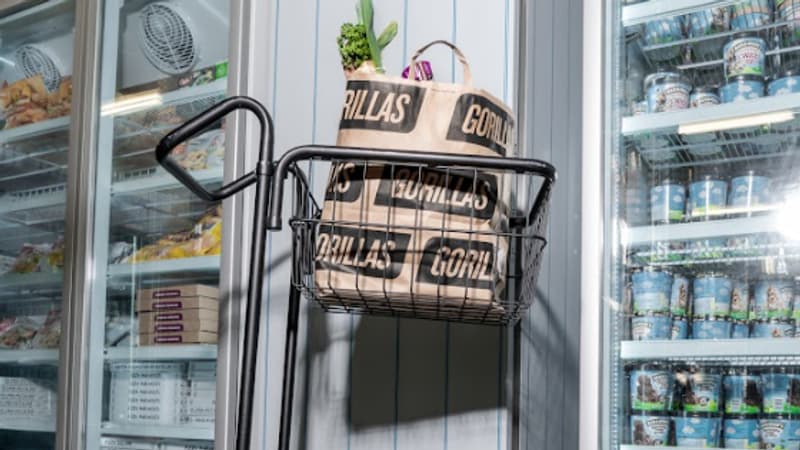Will fast trading be a shooting star? After a meteoric rise in 2021, 10-minute errand delivery services appear to be at a standstill. While startups have mushroomed last year in this emerging market born during the Covid epidemic, in recent months the sprouts seem to have quickly withered.
Zapp, KOL or even Yango Deli have ceased their activity in France. BAM Courses, La Belle Vie’s express trade service, has ditched its 15-minute delivery promise for an hour-long service. And while the spectacular fundraising made the news in the sector, now it is the layoffs that the major players are announcing. From Gorillas to Flink to Getir to Gopuff, the big fast-trade players have lost more than 7,000 jobs worldwide.
Add to that an expected concentration of the sector but which happens very quickly for an activity that is barely two years old. The giant Gopuff has offered the British Dija to tackle the European market. And the most fragile French are easy prey. At the beginning of the year, Frichti passed into the hands of Gorillas and Cajoo was gobbled up by the German Flink last May.
From 11 to 4 actors in a year
Soon there may be only three. Despite very rapid expansion and a leading position in France with a 61% market share according to Iri, Gorillas could fall into the hands of Turkey’s Getir. According to Bloomberg, discussions between the two groups are already well advanced. The German had been looking for several months to approach a competitor to reach a critical size and accelerate in his search for profitability.
Was express shipping just a short-lived fad favored by the lockdowns and other curfews of the Covid period? In any case, the data from panelist Iri does not point to a slowdown in demand. In the first half of 2022, fast trade represented 174.5 million euros of turnover according to Iri compared to 122 million for the whole of last year. The “lazy business” to use the adjective of Dominique Schelcher, the head of System U, seems for the moment to continue to seduce consumers, even if the panelist notes a “slowdown in the last three months with growth of” only “64 % “.
The problem is rather on the side of the economic model and the financial markets. As a reminder, these services charge an average of between 2 euros for shipping. However, to monetize the cost of a delivery man (around 18 euros per hour), he must make no less than 9 deliveries in an hour. Most platforms have chosen to offer permanent contracts instead of freelancers.
10 minute delivery interrupted
However, to finance this service at a loss, the platforms had no choice but to raise funds. Between the end of 2020 and the beginning of 2022, that is, in just 18 months, these platforms raised nearly 7,000 million euros worldwide.
In the inflationary context of rising interest rates, investors no longer write blank checks. To reassure their creditors, fast trading companies must show that their business is not a bottomless pit. Hence the reduction in spending in recent months with the numerous layoffs.
But also the degradation of the service. Today, no platform promises delivery in less than 10 minutes like when they launched. The services are also trying to boost their activity by offering more products for purchase (such as small electronics, for example) or are working on new business models such as Amazon Prime-type subscriptions to offer free delivery and recurring revenue.
Still, the voluntarism of platforms, mergers and acquisitions may not be enough to save the sector. Constraints related to urban planning should make it very difficult to deploy. In September, the government decided to classify the “dark stores” as warehouses, which leaves the mayor the power to decide their location with the local urban plan.
Source: BFM TV


